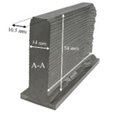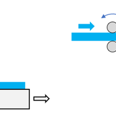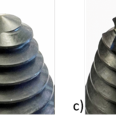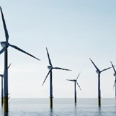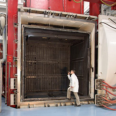Research in the Production Technology group addresses the engineering issues of new processes related to lightweight materials. Education within the Production Technology group is directly related to these issues. Courses from the Production Technology group are given on Bachelor and Master level.
Bachelor courses
The PT contribution to the bachelor phase concentrates on basic knowledge and understanding of the behaviour of various technical materials.
- B1 (UT-VU): Material Science I: Metals and Alloys
- B2 (UT-VU): Material Science II: Polymers
- B2: Processing and Properties of Polymers
Please find updated and more detailed information about these Bachelor courses on OSIRIS
master courses
In the Master phase the engineering issues of new products and new processes are addressed. The Production Technology specialisation within the Master Mechanical Engineering focuses on the optimisation of both the manufacturing process and the performance of lightweight materials in structural applications.
- M: Composites
- M: Composites Forming
- M: Experimental Methods
- M: Design, Production and Materials
- M: Rheology and Processing of Thermoplastics
- M: Plastic and Elastomer Engineering
- M: Phase Transitions in Manufacturing
- M: Process Equipment Design
Please find updated and more detailed information about these Master courses on OSIRIS
master assignments and internships
Making the proper choice: Production Technology
Research and education within PT is dedicated to understanding and making use of process-structure-property & -performance relationships, typically for lightweight constructions to be designed and manufactured in some optimal manner. We warmly welcome many students each year to perform their MSc thesis project within our chair, internally as well as externally in research institutes and companies. Obviously, you can expect that sufficient preparation is required to perform your assignment successfully. We offer several courses to enable you to do so. Note that, without this background knowledge, it will take you a lot more time to get up to speed and to reach sufficient depth in your thesis project.
For students going into the metals side of things, we recommend Design, Production and Materials (191121720) or Solids and Surfaces (191155700), as well as Phase Transitions in Manufacturing (202100319), and possibly including Rheology & Processing of Thermoplastics (191121740). Those more engaged in polymers are recommended to follow Plastic and Elastomer Engineering (201400044), and Rheology & Processing of Thermoplastics (191121740). For a thesis in composites, you are obviously expected to do the Composites (191121710) course, and additionally a selection from Composites Forming (191121700), Design, Production and Materials (191121720) or Solids and Surfaces (191155700), Plastics and Elastomer Engineering (201400044), and Rheology & Processing of Thermoplastics (191121740). For ME students in general, we recommend Fundamentals of Numerical Methods (201900074) and Experimental Methods (201400046), while structural engineering most often starts from Linear Solid Mechanics (201400037).
Regardless of which thesis project you work on, a literature study will be part of this work. Useful information on this aspect can be found here, for example.
Finally, a list of possible master projects is available below. List updated 24-04-2024.
Current list of internal graduation assignments:
Current list of external graduation/internship assignments:
The PT group extensively collaborates with the Thermoplastic Research Center (TPRC). Several graduation and internship assignments are available at the TPRC, please refer to their website for an up-to-date overview here
In addition, the PT group often collaborates with the Computational Design of Structural Materials (CDSM) group. Find a link to their MSc assignment page here.


